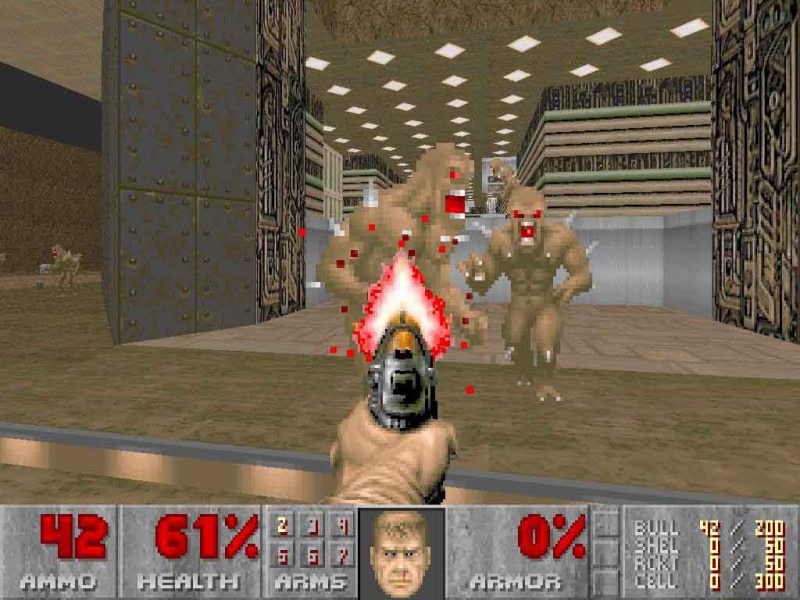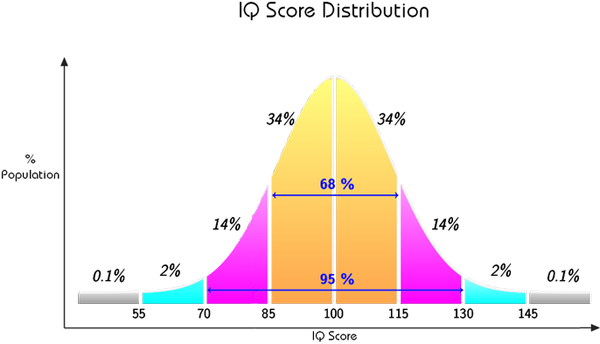Non-Player Characters And The Bell Curve
One of the better memes floating around the Right recently involved NPCs, or “non-player characters” in video games, to whom the faceless hordes of the Communist-leaning Left and bourgeois-leaning consumerists were compared. We see ourselves facing a dragon with two heads, both of them vapid.
In a video game, a NPC is a character in the game generated by the computer, usually as part of an adventure for the player. They can be attempting the same quest, or background extras who serve ordinary roles like selling bread by a roadside or opening a gate. Sometimes, they can turn into hidden enemies as thieves or informants.
Whenever you encounter one, you have to realize that you are playing against a small bit of code loaded with data on how to appear human. They are often convincing, as personalities, but when you dig deeper, you see that they are simple personalities, acting out a series of urges and fears without any greater depth.
Not surprisingly, people noticed that many of the occupants of modern society appear to be similar to NPCs. They like shopping, eating, drinking, and having sex. They fear order, standards, values, and hierarchies. They want anarchy with grocery stores and 500-channel television. Beyond that, they do not really think.
These people are fascinating in that they are always busy. Always on their cell phones, buying things, going places, eating things, throwing things out. Forever talking about the newest entertainment, news, fashions, or social events. They are entirely externally-directed and fear spending a half-hour in silence alone.
It is not as simple to say that these people are poor. Many of them have money to varying degrees, some even quite a bit. They are competent at certain tasks — programming computers, designing box-like buildings, filing civil rights briefs, inspecting homes — but have no depth or intelligence or mind for nuance. They are like robots.
We call them proles because that group is defined by its inability to answer questions of judgment. It can handle categorical logic, where there are nice solid lines between concepts, but gets lost in trying to understand details or figure out why something happened or should happen.
These proles can be understood by a quick look at the bell curve or standard distribution, a mathematical order inherent to the informational structure of the universe, thus appearing in everything like one of Plato’s forms. The bell curve shows us that most of humanity are fairly simple beings:
In our society, perhaps the top fifteen percent are above 120 IQ points, which is the beginning cutoff for a college education or at least was during our healthier eras. Below that, the type of complex analysis and reasoning required to understand literature, philosophy, history, or art is entirely missing.
Even more, another cutoff exists, which is moral intelligence. Our top people are those who have both of what Alfred Jay Nock calls “force of intelligence” and “force of (moral) character.” Maybe ten percent of society are good people who know what they are doing, and the rest are self-serving incompetent opportunists.
That is not to say that you cannot educate proles. You can, as long as you do not care about the results of doing so. They memorize things quite well and apply basic concepts even down to the very granular details. They follow rules well. They do not understand the implications of their actions, or any top-down picture of what they are doing.
We have sayings for that type of intelligence failure. Missing the forest for the trees, for example, describes someone who carefully categorizes each tree, plots it on a graph, and then misses the fact that a forest is an ecosystem comprised of not just these trees but many other things, and is by itself a whole.
In the same way, proles do not understand civilization. They like strong rules and giant dumps of money on problems, but do not understand how these problems share causes, or how a solution spanning several areas can be implemented. They do not see society as a whole, only as a series of issues.
Like NPCs, they are pathologies. Computers generate behaviors based on a few pragmas, or translations from stimulus to response, and so the characters they produce are predictable and relentless in their pursuit of those few things. All of our modern society has come to resemble that type of mentality.
We started with ideology, which distilled the question of “what is good?” to “equality is good, everything else is bad.” Then in our equal state, we no longer had rank or role, so money because good and not-money bad. Then in order to make more money, we had to accept everyone, so low standards were good and high standards were bad.
All of these reflect what happens when proles rule a society. The proles, who make up something like ninety percent of our people, will always be NPCs, and when given power, they make an NPC society, or one which is pathological and robotic. If we suppress their power, the ten percent take over and make things work again.
Tags: bell curve, NPCs, proles, robots











